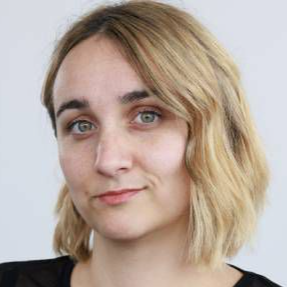Abuse survivor Keith Wiffin also said he believes issues with the work culture and systems were rampant.
An independent investigation into their department was also launched.*
MSD would not answer questions about the investigation, saying it could allow people to identify whistleblowers.
"I believe we not only have failed these victims of abuse as children but as adults too. It is something I will be eternally sorry for," the anonymous worker said.
"They came to us for acknowledgment, support and healing and all we did was spit in their faces, metaphorically."
They said about eight to 10 staff had used the whistleblower process to complain about data manipulation and the "borderline abuse" towards clients through the system.
They said staff were told not to do interviews with claimants because they were completing them too fast and making the assessment backlog look too big.
MSD's deputy chief executive of people and capability, Nadine Kilmister, said they hadn't stopped doing interviews, but there had been a reduction as they focused on completing older cases.
Figures released under the Official Information Act show the number of interviews completed last year dropped to 105 compared to 292 the year before and 241 the year before that.
As of July this year only six interviews had been completed.
"We would be concerned if there was a misunderstanding by individuals about interviews," Kilmister said.
"We have reminded our team leaders that engaging with clients through interviews is a key part of our process and has not been stopped."
The worker also said some cases were dragging on for five or six years.
MSD's general manager of ministerial and executive services, Magnus O'Neill, said external factors such as responding to the Abuse in Care - Royal Commission of Inquiry and Covid-19 alert levels affected the rate they completed cases.
A group of 96 claims have also been on hold while MSD finalises its approach to remedying potential breaches of the Bill of Rights Act.
In 2018/19 the average time for claims to be resolved reached 5.5 years, and in 2019/20 they had brought this down to 4.3 years, he said. The target for June next year is 3.5 years.
Wiffin said he wasn't surprised at the MSD worker's claims.
The settlement offers were, in his view, "insulting and miserable", he said.
When he made his claim 15 years ago, people were leaving, "disenchanted".
"They were, in good faith, going there to do the right thing and what they found was that they couldn't do the right thing because of policy that was being developed above their heads."
Wiffen said it was "disappointing" to see "no change, especially against the background of the Royal Commission of Inquiry".
Donna, who did not want her surname used, worked at the unit from 2019 until July this year, when she resigned.
Policy from upper management prevented them from keeping commitments to claimants, she said.
"I quite often from claimants got told 'you're just like the state when I was in state care, you're treating me exactly the same way, you're abusing me . . . you're just waiting for me to die, you don't care about me'."
When she started she was told claims took about 4.3 years to resolve, but soon came to realise they were taking more than five years.
"I don't think that's acceptable."
Another former employee who finished in early 2018, Anthea Raven, said at the time managers were brought in who bogged down processes with a "legalistic" approach.
Raven, who has a background in social work, said the system was too "formalised".
"It was more meeting the needs of the government, not the needs of the claimants. It definitely wasn't survivor-focused at all."
Kilmister said they were continuously improving policies to ensure they built a positive workplace.
She said the Royal Commission redress report has been "unsettling for the entire group" and had contributed to some staff leaving.
Six new staff have started this week, with more recruitment planned.
*An earlier version of this story incorrectly stated MSD launched the independent review into the unit just days after the Herald asked for comment on the claims of toxic work culture issues. MSD has now clarified the review was launched prior to media queries being made.
